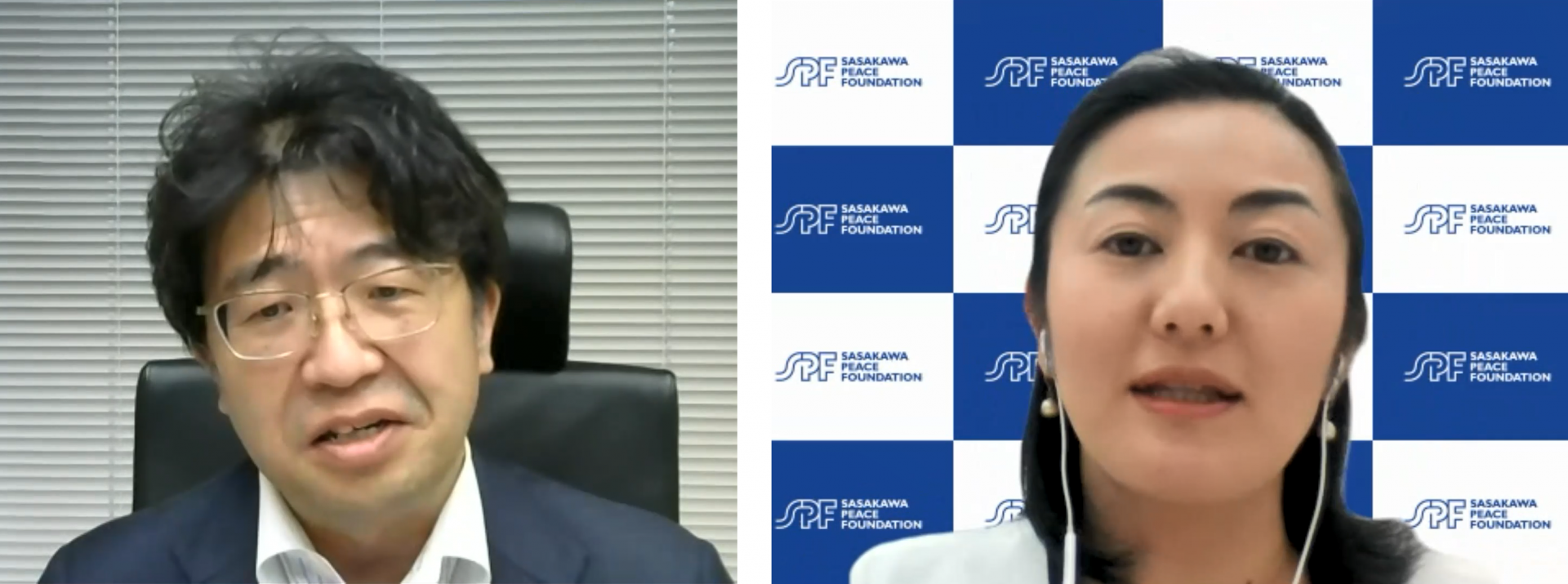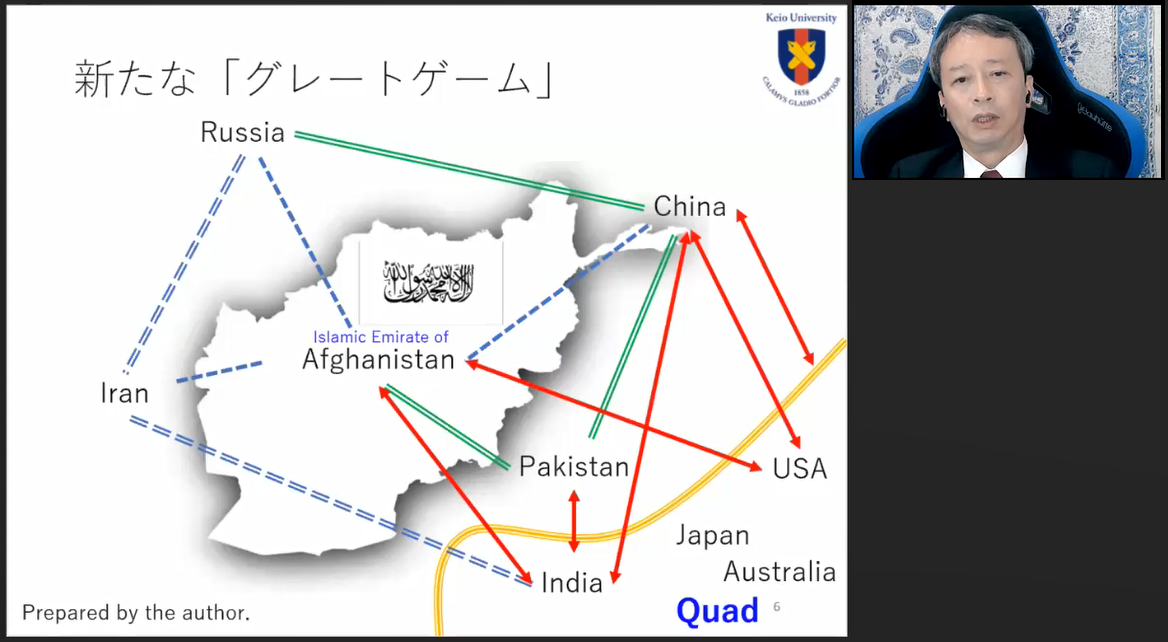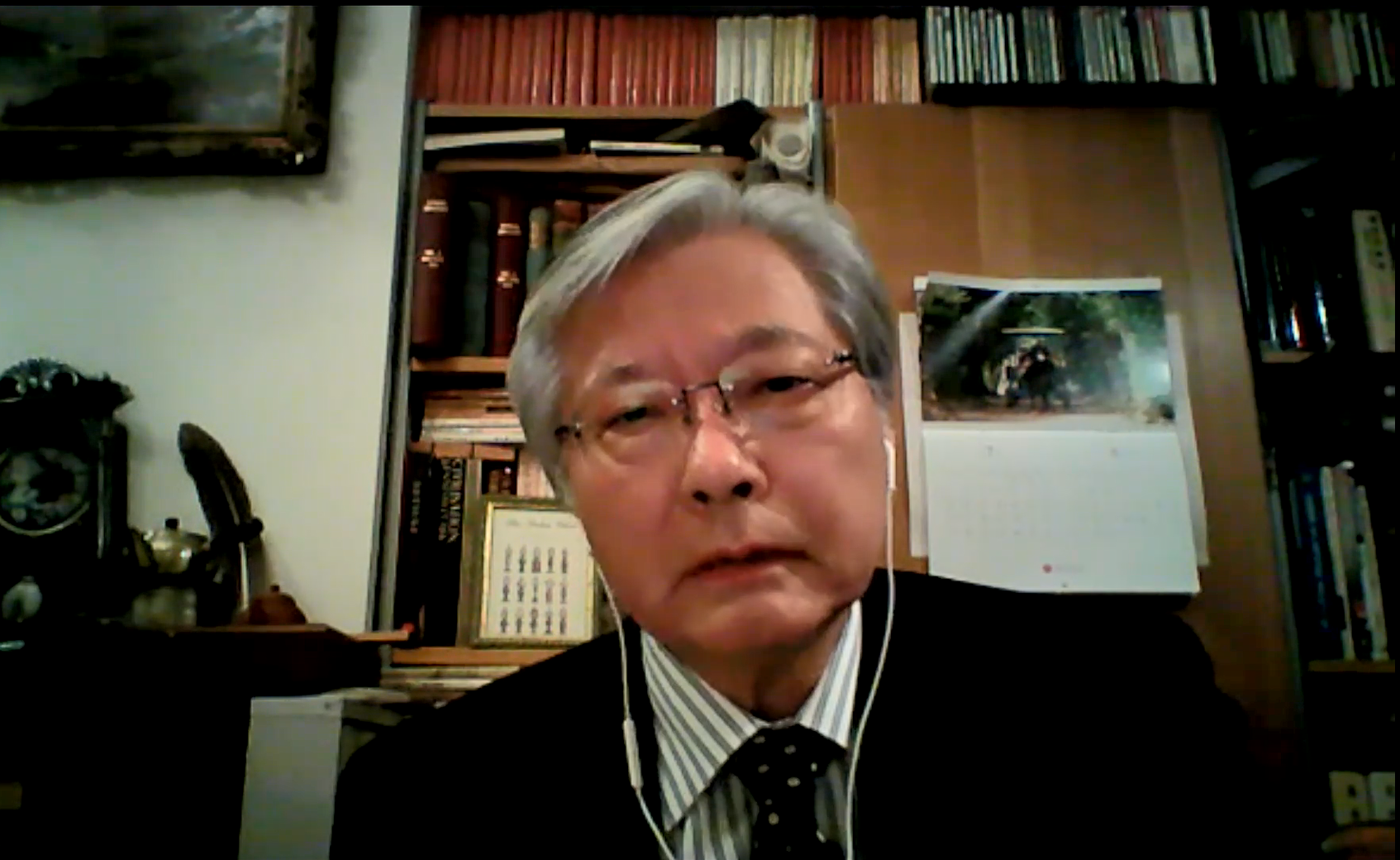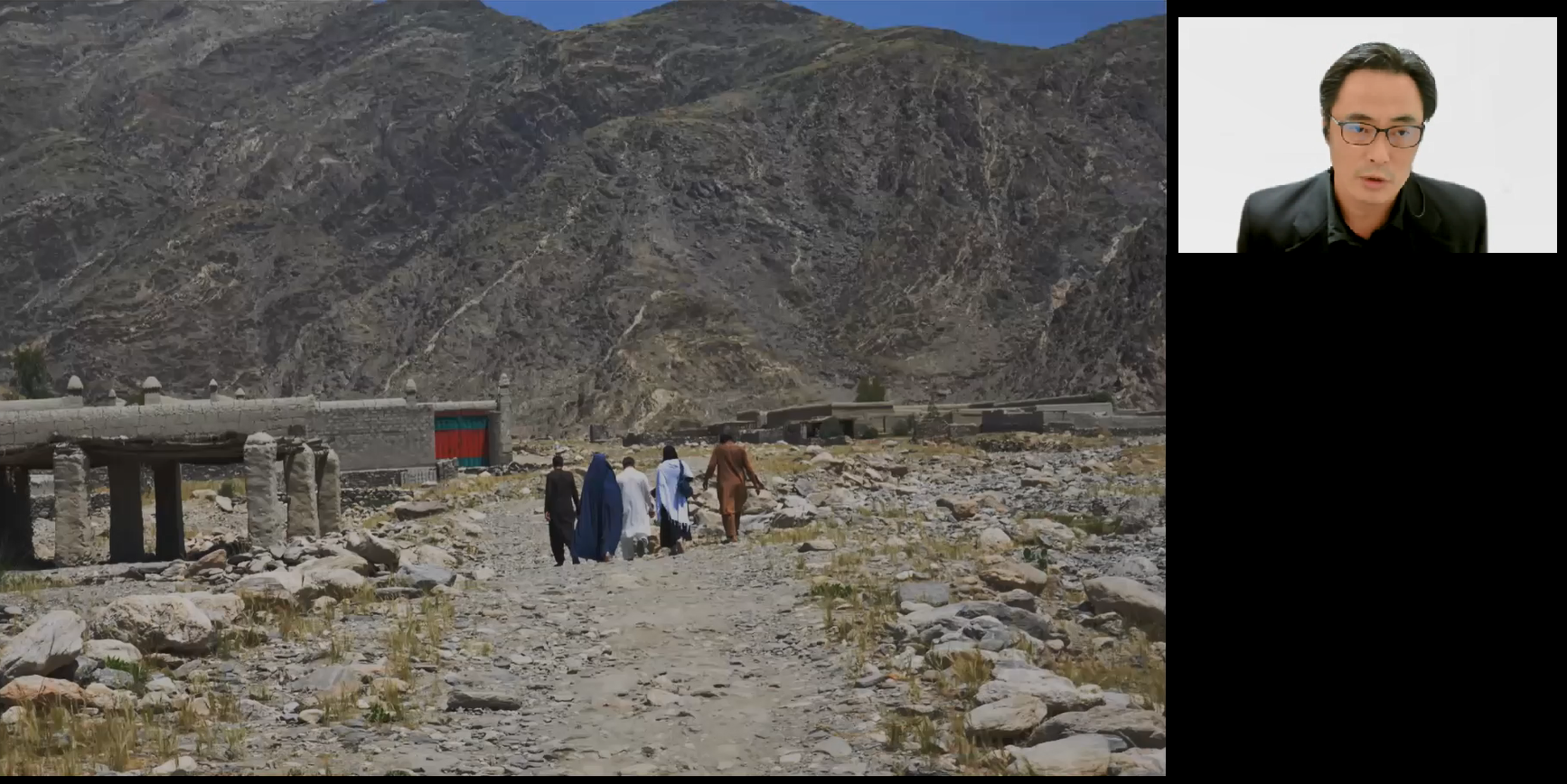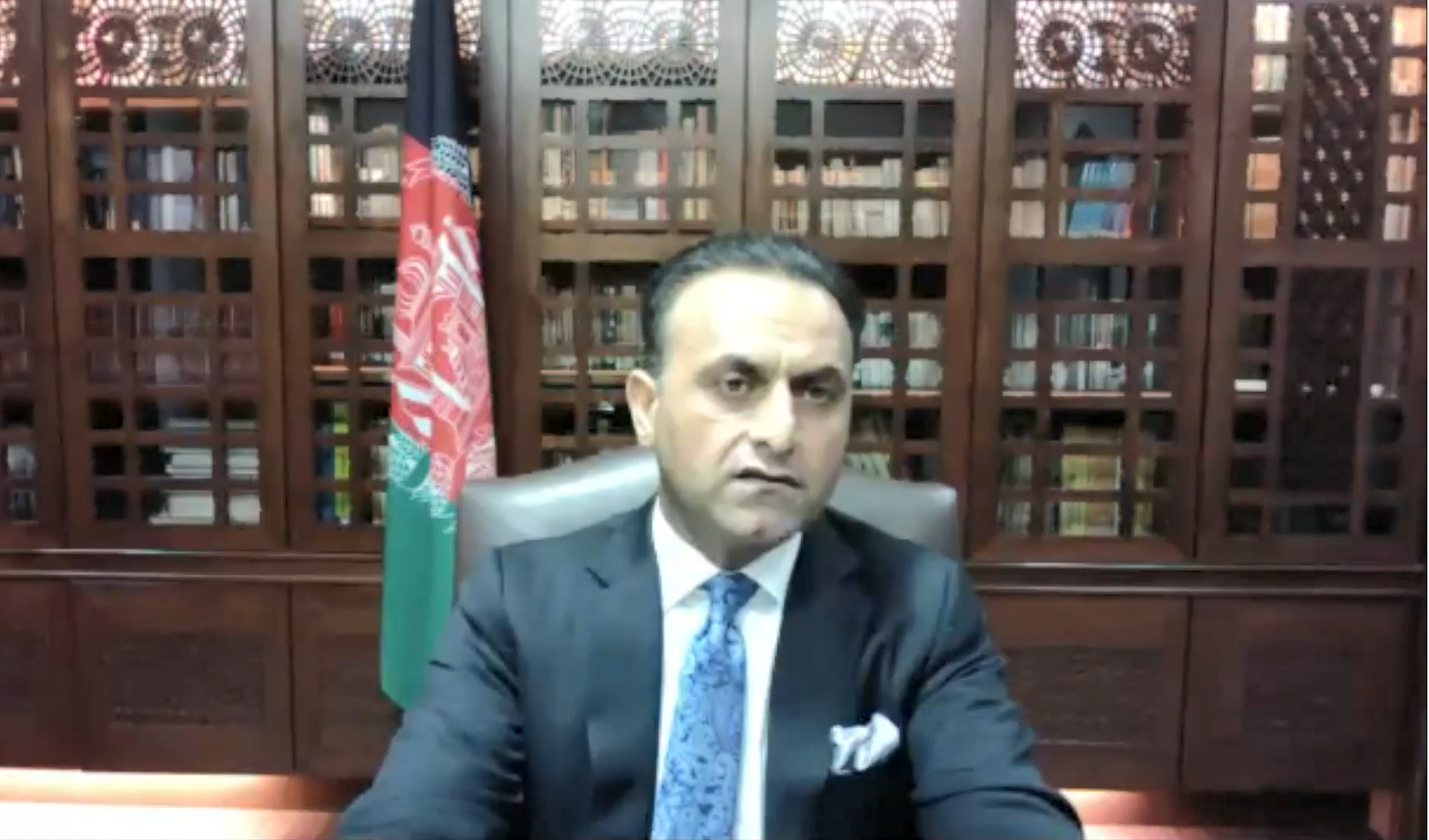At the same time, he also warned of a future in which tensions between regional powers stymie collective efforts to combat the terrorist threat, allowing groups like ISIS and others to reemerge. “Let’s not forget the dangers that an unstable Afghanistan can pose to the region and the world once again,” he said, arguing that “the cost of saving Afghanistan today is much less than the cost of saving Afghanistan later.”
During the Q&A session, moderated by Professor Masako Ishii, professor at Rikkyo University and JPF Board Member, the discussions covered a range of topics including the potential administrative organization of the Taliban, the challenges of quashing corruption, and the thoughts and concerns of people living in Afghanistan.
One question posed to Mr. Yamamoto wondered whether the international community would be able to set aside geopolitical disagreements in order to present a united message to the Taliban. Mr. Yamamoto conceded that while each country has its own perspective, major players including the U.S., Russia, and China – all permanent members on the UN Security Council – have an interest in a stable Afghanistan, allowing them to unite behind the shared goal of supporting peaceful dialogue to stand up an inclusive government.
The conversation also turned to the voices of people experiencing these events on the ground. Mr. Komino explained that while the perspectives vary, he has heard worry and anxiety over the new Taliban authority. While some he said have lost hope or want to seek refuge abroad, he also pointed to others who have set their sights on rebuilding the country. “There are people evacuating abroad, but many of brightest people are coming back. Together with them, [Japan] must respect their leadership and work by their rules and depending on their leadership. Then [the progress in Afghanistan] will never go back to zero.”
Ambassador Abdali agreed, stating that “when the transition was complete in 2014, it was based on Afghanistan’s capacity, and that capacity still exists.” He pointed to educated Afghans who have stayed in the country, the trained armed forces, and the potential for progress should the promise of an inclusive government be realized. “Definitely, it is sad to see this kind of situation abruptly happening in Afghanistan, but it’s still not too late to rescue most of the achievements of the last 20 years.”
Additional links:
For more from the Asia Peace Initiatives Department, visit the
program page.
